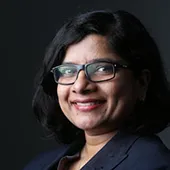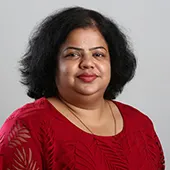
ORF: At Open, you came together to solve a problem both of you had experienced in your previous ventures with the lack of financial infrastructure for small and medium-sized businesses and startups. Tell us how you are building financial tools for your fellow entrepreneurs.
Deena Jacob & Mabel Chacko: Business banking was broken for small businesses. Large enterprises enjoy special privileges of transaction banking groups, but most small businesses are deprived of these. Small and medium-sized enterprises (SMEs) face a lot of difficulty tracking and forecasting cash-flows, effectively managing account receivables and payables. They need to deal with multiple interfaces for accounting, payment gateways and payroll, and there is a lack of online tools to help them plan their day to day activities. We saw these challenges ourselves in our previous stints of running and managing startups. While I was running a payment gateway, I was struggling to make settlements as I had to do individual fund transfers for each merchant. Since mine was a small startup, my banking partners did not see value in giving me “privileged benefits.” Deena was leading finance for a cab-hailing startup TaxiforSure back then, and even with their growth and volumes, managing finance was a sure pain, especially in doing driver payouts. Speaking to other entrepreneurs and small business owners, we realised that this exists across a wide cross-section of businesses and we were guided by the principles of building things people want to change in the way banking happened for small businesses.
Open offers a business account in partnership with banks that helps SMEs automate and run their finances effectively. The platform enables businesses to collect payments, do seamless payouts, auto-reconcile and categorise income and expense, thereby automating book-keeping. It also offers application programming interface (APIs) to integrate banking into business workflows. Currently, Open is serving more than 500,000+ SMEs and processing US$14 billion in transactions annually. Using Open, SME business owners can save at least two hours of a day, which they are able to put back to growing their business.
ORF: What are your views on India’s financial ecosystem and capabilities vis-à-vis other major economies, and what exciting developments do you foresee?
DJ & MC: It is fair to say that India has an evolved financial ecosystem compared to many of the world economies. Systems such as UPI (Unified Payments Interface) have been defining disruptions in the way a billion plus people transact. In banking and digital adoption, the ease of digital transactions and options available are far better compared to even developed economies. The new wave of open banking and other changes in regulation needed for a more holistic financial ecosystem that focuses on broader customer needs and not only as an enabler of money movement is the key shift underway. The creation of new segments such as neo-banking and open credit, account aggregators and the proliferation of new entrants in digital lending as well as conglomerates foraying into providing a financial ecosystem for the customers are all a leap towards the next level of evolving into a customer-need and experience-focused financial ecosystem. Digital banking focused on connected commerce and new age credit underwriting with 360-degree customer interaction on various platforms and point of commerce would be the key themes to watch out for in the coming years.
ORF: How has India's technology ecosystem enabled you to build Open in ways that would not have been possible even a decade ago?
DJ & MC: Over the past decade, many things have changed. From the way startups are perceived and the kind of technology available, to the financial infrastructure being built to enable digital payments and real time transactions. Banks too have increasingly opened up to exposing APIs for fintechs to build services on top of the bank account.
ORF: Both of you are serial entrepreneurs. What lessons have you brought along from your previous ventures that have contributed to Open’s success?
DJ & MC: There is a lot of deep learning in the trenches of the startup world. We will not say we know everything, but we surely know what we should not be doing, because those are learning from our previous experiences.
ORF: As four co-founders, how have you structured your founding team to deliver optimum results with transparency and open lines of communication?
DJ & MC: All four of us have a clear operational area we manage. Anish is the CEO and he manages business strategy. Deena manages finance, lending and wealth management. Mabel handles marketing and operations and Ajeesh manages the technology. This structure is built on our skill sets and brings in a lot of clarity on what each of us contributes and what we are accountable for. And the core of all this is the trust we have in each other that we are constantly working towards the betterment of Open in all that we do. At the same time, we could not have achieved what we did without our team. We have some guiding principles by which we select our teammates — we look for self-starters, we look for people who do not settle, we look for people who have done something of their own before. We do not punish our teams for making mistakes, instead we use each opportunity to learn and grow collectively. And this in many ways has brought in a culture that’s truly Open and defines what we stand for.
The views expressed above belong to the author(s). ORF research and analyses now available on Telegram! Click here to access our curated content — blogs, longforms and interviews.




 PREV
PREV



